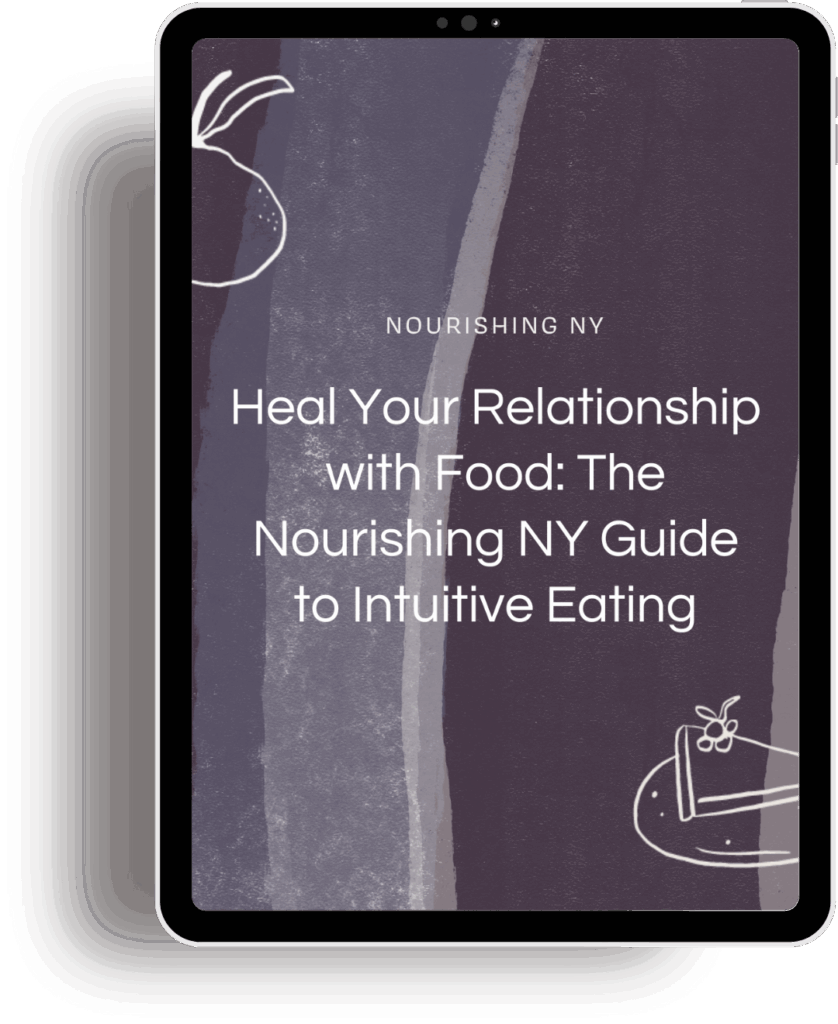The end of the holiday season comes the month of January and the beginning of a new year. New Year’s resolutions and the fresh start of the new year often inspire people to want to start new goals and focus on their resolutions in the new year. This trend is often reflected in social media, with many online posts reflecting users’ new routines for the upcoming year. Unfortunately, many of these posts can be centered around diets and cleanses, which can be particularly overwhelming to those in recovery.
Since January can be seen as a new start for most, it can feel easy to fall into the “reset” or “healthy living” mindset, especially when these types of posts become widely distributed on social media. This can make it easy to compare yourself to the influencers that are promoting their new routines across platforms. Unfortunately, many of these pages promote diet culture disguised as wellness routines or healthful lifestyles. If these pages make you feel like you need to change something about yourself or damage your self worth, removing these pages from your feed may be the first step to start to improve your routine in the new year.
There are still many ways to navigate social media during the month of January without feeling overwhelmed.
Explore New Pages.
The new year is all about starting anew. This can be reflected in your social media pages as well as in your everyday life. Follow influencers that make you feel uplifted instead of dragged down. Finding new influencers that uphold your values may also expose you to new interests.
Limit Your Screen Time.
New Year’s resolutions should be about self improvement with individualized goals that focus on your own values. It can be easy to compare your resolutions to others online, and limiting your screen time might help with avoiding triggering content. This can also give you more opportunities to focus on things that encourage or uplift you. One of these things could be spending time away from your phone by going on walks, developing new hobbies, or learning a new skill. Focusing on non-diet-centric resolutions may assure a good start to the year.
Remember to be kind to yourself.
Self-care during this time is important, so focus on caring for yourself during this time and try not to compare your routines or resolutions to others’. Remember that healthy resolutions do not have to be diet-related and should be tailored to each individual’s goals and values.
January on social media can be a difficult time to navigate, but it is important to focus on your values and your progress instead of focusing on others. Remember that resolutions do not have to be completed immediately in January, and it is okay to take your time with them and progress at your own pace.
References
Hunnicutt, C. (2020, January 2). Setting (and Keeping!) Realistic New Year’s Resolutions While in Recovery for Binge Eating Disorder. Oliver-Pyatt Centers. https://www.oliverpyattcenters.com/new-years-resolutions-recovery-binge-eating-disorder/
Pike, B. (2019, January 8). Navigating New Year’s Resolutions & Eating Disorder Recovery. West County Psychological Associates. https://wcpastl.com/navigating-new-years-resolutions-eating-disorder-recovery/
Spanjers, B. (2020, January 29). New Year’s Resolutions & Eating Disorders. Center For Discovery. https://centerfordiscovery.com/blog/new-years-resolutions-and-eating-disorder-recovery/
The Impact of Social Media on Eating Disorders | Social Media & Body Image. (n.d.). The Recovery Village Drug and Alcohol Rehab. Retrieved January 8, 2023, from https://www.therecoveryvillage.com/mental-health/eating-disorders/social-media-and-eating-disorders/



